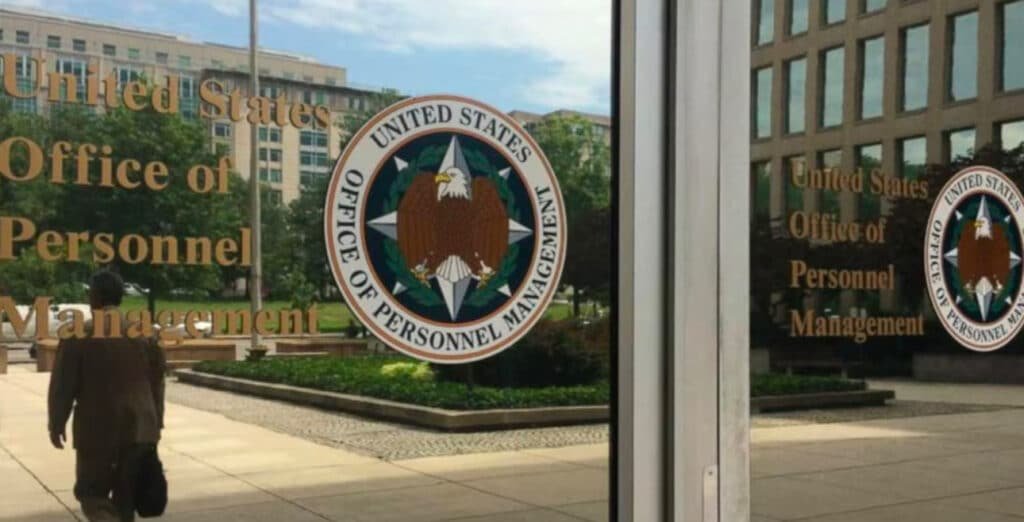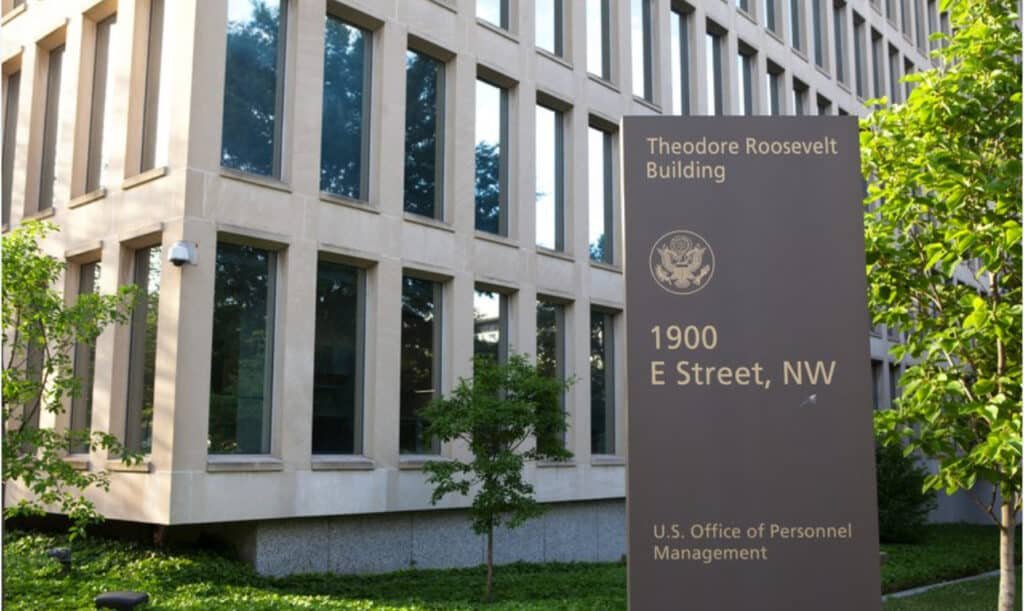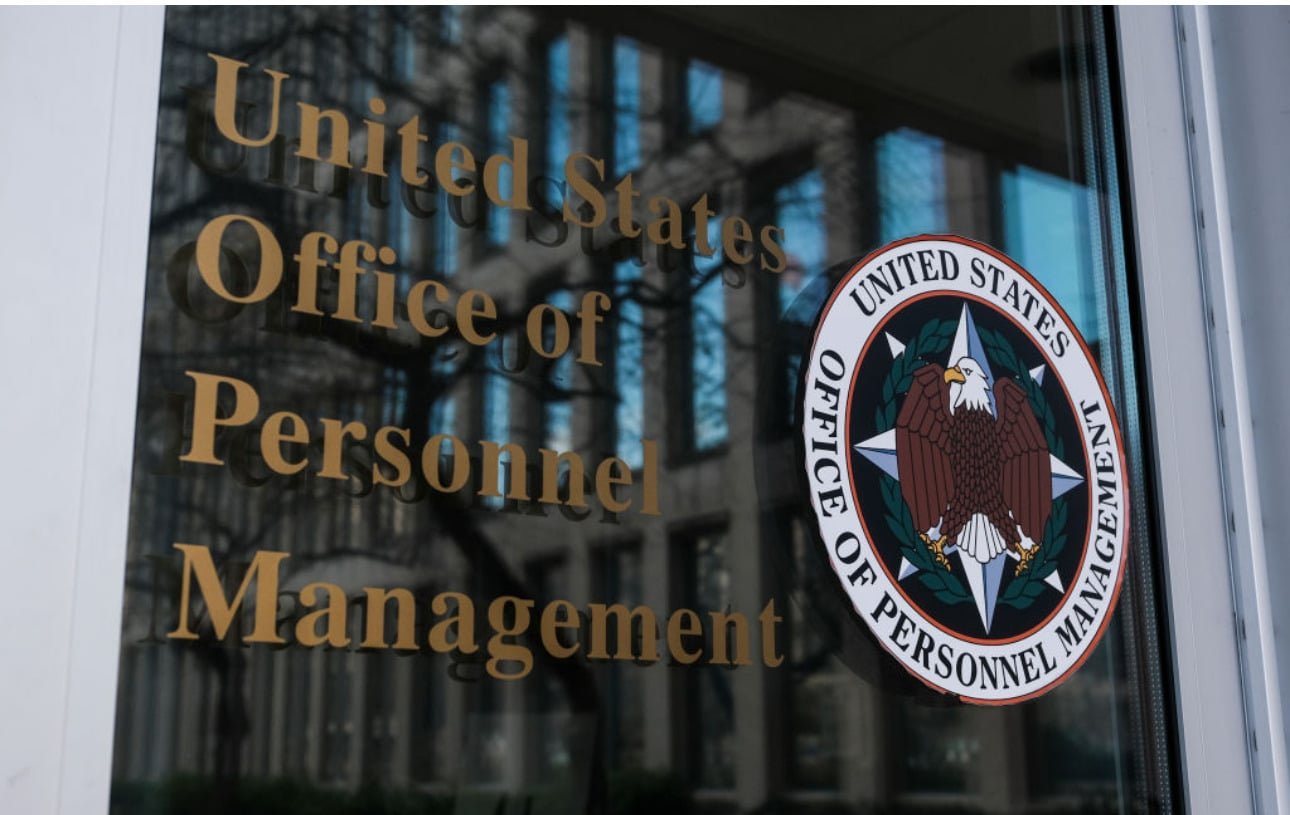Feds Told to Move to DC or Quit Remote Work
The U.S. government’s human resources agency has informed at least two dozen employees that they have just nine days to decide on relocating to Washington, D.C. Labor unions and governance experts view this as yet another tactic by the Trump administration aimed at coercing federal workers into resigning.
On Wednesday, the Office of Personnel Management (OPM) sent an email to remote employees, some residing thousands of miles away from the capital, notifying them of their impending relocation. They have until March 7 to make a decision regarding the move, according to sources familiar with the communication and copies of the email reviewed by Reuters.
The memo warns OPM employees that if they choose not to relocate to Washington, their options for “continued employment with this agency may be limited,” and it indicates that the agency may consider taking adverse actions against them. It also mentions that they could be eligible for severance pay.
Over 2 million federal workers were offered buyouts by the Office of Personnel Management (OPM). This was after an executive order from President Trump. So far, more than 65,000 federal workers have taken part in the “Deferred Resignation” program.
The deadline for accepting the buyout was February 6. There was no second chance for full pay and benefits until September 30.
Key Takeaways
- Federal mandate emphasizes a return to a traditional working environment in Washington, D.C.
- The Office of Personnel Management offered buyouts to over 2 million federal employees.
- Over 65,000 federal workers have already accepted the “Deferred Resignation” program.
- The initial deadline for buyout acceptance was February 6, with full pay and benefits available until September 30.
- Unions and state attorneys general have filed lawsuits against the directive, citing lack of congressional authorization.
The Federal Relocation Mandate: What It Means
The federal employees relocation ultimatum is a big change. It comes from the Office of Personnel Management (OPM). This move is about making things more efficient and secure for the country.
Implications for Federal Employees
About 200 workers got a memo from OPM. They have only nine days to decide if they’ll move to Washington. This isn’t just about moving. It’s about showing commitment to their jobs and the country.
With 2.3 million in the federal workforce, these employees face big decisions. They must consider the benefits of being closer to the center of power. But they also have to think about leaving their homes and families behind.
Government’s Motives Behind the Move
Washington D.C. is becoming the hub for federal operations. This is to make things run smoother and strengthen national defense. The goal is to improve how different departments work together.
The Trump administration wants to cut $1 trillion from the budget. This move is part of that effort to save money and make the government more efficient.
Reaction from Federal Workforce
The federal workforce is divided on this change. Some are worried about the impact on their families. Others see it as a chance to do more meaningful work.

The National Federation of Federal Employees represents 110,000 workers. They are speaking out about the concerns and trying to make the transition easier for everyone.
| Statistic | Value |
|---|---|
| Federal Civilian Workforce | 2.3 million employees |
| Relocation Memo Recipients | 200 employees |
| Notice Period for Relocation Decision | 9 days |
| Relocation Deadline | March 7 |
| Affected IRS Office Employees | 60 employees |
| Employees Relocating to Alabama | 500 employees |
| National Federation of Federal Employees Membership | 110,000 workers |
Ultimate Ultimatums: Expectations for Remote Federal Staff
Recent directives have made remote federal staff relocation policies strict. They ensure all federal employees serve where decisions are made. Our nation needs its dedicated workforce in Washington, D.C. to show unity and commitment.
Details of the Relocation Policy
The relocation policy for federal staff is clear. Current remote employees must move to Washington, D.C. within a set time. The policy includes help with housing and moving to make the transition easy.
This policy is not just a suggestion. It’s a rule to show our loyalty to serving our nation.
Consequences of Non-Compliance
Following the relocation policy is essential. Those who don’t comply face serious consequences, like being reassigned or fired. Not following the policy shows a lack of commitment to our values.
By following these rules, we meet our professional duties. We also show the strong commitment expected from those serving our country.
Political Backlash: Federal Relocation Policy Under Scrutiny
The federal relocation mandate has sparked a lot of talk in politics. Today’s political news is filled with arguments about this policy’s effects on our federal system. It’s not just about moving people; it’s about changing how government works, with big election stakes.
Responses from Political Figures
Politicians have mixed views on the policy. Some say it’s a step back for work flexibility and might upset many federal workers. For example, NOAA has told hundreds of new employees they’ll lose their jobs.
On the other hand, supporters see it as a return to American values and strong leadership. The Trump administration wants to cut $1 trillion from the budget, showing their commitment to smaller government. This move has made politics even more important, with many conservatives speaking out.
Impact on Upcoming Elections
This policy debate will be key in the next elections. Both sides are using it to win over voters. The White House has asked agencies to plan for big staff cuts by March 13, making things even more tense.
So far, about 200 remote workers have been told to move. This is a big moment for federal jobs. The issue will likely shape how people vote and the federal policy debate as election day nears.
Ultimatum to Remote Federal Staff: Move to Washington
The Ultimatum to Remote Federal Staff: Move to Washington marks a big change in how we govern. We think direct oversight and teamwork are key. This Washington relocation ultimatum is more than just moving. It’s about putting power in one place.
By moving to Washington, federal staff will work more efficiently and be more accountable. It’s important to be where decisions are made. This way, we can work together better under our leaders’ watch.
Some might worry about the disruption, but the benefits are clear. This move will make federal service more united and strong. It will start a new time of federal energy, making democracy in Washington even stronger.
The Washington relocation ultimatum is not just about being there in person. It shows our commitment to good governance. We’re bringing our team to the heart of policy-making. This keeps Washington as the lively center of federal work.
Economic Impact of Federal Employee Relocations
Many federal employees are moving to Washington, D.C., which will greatly affect the local economy. This move supports our belief in centralized governance. It ensures effective oversight and efficient administration.
This strategy does more than just fill desks in the nation’s capital. It strengthens our economic foundation.
Effect on Washington D.C. Housing Market
At least two dozen federal employees have only nine days to decide on moving to the capital. This puts a lot of pressure on the D.C. housing market. With 200 employees getting relocation notices, housing prices in expensive neighborhoods could rise even more.
The housing market is expected to change quickly. This could lead to faster development and a more competitive market. It will open up new opportunities for investors and developers.
Local Businesses and Federal Worker Integration
Local businesses will greatly benefit from this move. The relocation policy is expected to boost the economy. This is because of the increased economic activity from the new clients.

Restaurants, retail stores, and service providers in Washington, D.C., will see more demand. This could lead to more jobs and economic growth. It shows our commitment to economic prosperity through traditional values and strategic governance.
Repercussions for States Losing Federal Employees
The effects of these relocations are not just in Washington. About 1,500 employees are moving from the Washington area to field offices across the country. This includes 500 going to Alabama.
The economic impact on D.C. is clear, but we must also think about the states losing these employees. These states will face challenges as they try to adapt and sustain their local economies. They will miss the professional expertise and economic activity these employees brought.
FAQ
What is the new mandate regarding federal employees?
Why has the government decided to issue this ultimatum to remote federal staff?
What are the implications for federal employees currently working remotely?
How have federal employees reacted to the relocation policy?
What are the details of the relocation policy for remote federal staff?
What are the consequences of non-compliance with the relocation policy?
How have political figures responded to this ultimatum to remote federal staff?
What impact could the relocation policy have on the housing market in Washington, D.C.?
How might local businesses be affected by the integration of federal workers?
What are the economic repercussions for states losing federal employees due to the relocation mandate?
Source Links
- Federal judge halts Trump’s fed worker buyouts — after 65K take up the offer
- Remote US federal employees get ultimatum to move to Washington
- US judge halts Trump administration’s calls for mass firings at agencies – Freedom 96.9
- Zelensky Archives – The Automatic Earth
- Raúl Ilargi Meijer, Author at The Automatic Earth
- It’s starting to get a bit much!
- US judge halts Trump administration’s calls for mass firings at agencies – SRN News
- Remote US federal employees get ultimatum to move to Washington
- Elon Musk suggests pay rise for some government workers after job cuts
- ODU shooting update, VBPD memorial service, diversity deadline: Sunrise Brief
- Remote US federal employees get ultimatum to move to Washington














